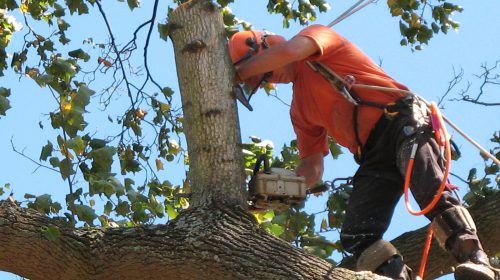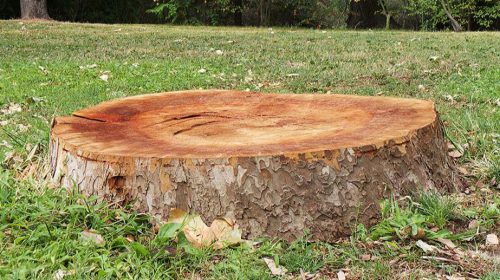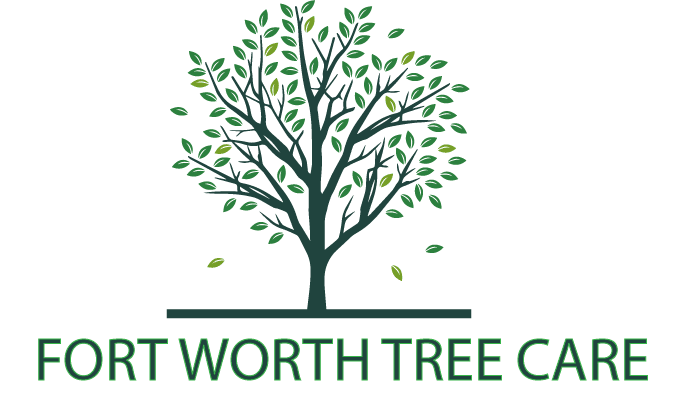SUDDEN OAK TREE DEATH, DECLINE Fort Worth TX
SUDDEN OAK TREE DEATH

Our experts can help with your post oak decay.
What is Oak Tree Decline?
Oak Tree decline can be caused by many factors in Fort Worth and North Texas. Most commonly, it’s due to extreme weather events. Oak tree decline can affect most Oaks, especially after severe droughts or heavy rainfalls.
Fort Worth has witnessed a dramatic reduction of many oak tree varieties. This sudden oak mortality has spread to Tarrant County, Texas, through the spreads of beetles.
This disease causes severe damage to trees and spreads rapidly in forested areas. Numerous nurseries keep a cool, damp environment that has increased the risk of sudden oak death.
It can also spread quickly to your gardens and home landscapes during rainy seasons. The most obvious effect of this dangerous and invasive organism is visible on the leaves and twigs of infected plant species in urban and suburban forest settings.
Fort Worth tree experts and an experienced tree company have been specially trained to prevent and control this deadly and threatening oak tree decay.
Diagnosing Sudden Oak Tree death & Decline
Fort Worth Tree Service & Stump Grinding services is necessary to detect Sudden Oak Tree Death and Decline. This tree disease can cause severe damage to your oak trees and could even be fatal if the feeder roots are attached. Most Post Oak trees are affected by Sudden Oak Death, which is common in northern and central Texas. It can affect other oak trees, including red oaks.
It usually affects Savannah post-oaks in north Texas. It causes oak trees to become choked by the feeder roots, which can block water transport and reduce the canopy’s growth.
Many reasons can lead to oak trees becoming weaker. Weather, insect, fungal or bacterial pathogens can cause oak trees to die. Spotted or dying twigs and branches are signs that trees are stressed and may be susceptible to disease.
Even minor signs of infection usually do not cause immediate tree deaths. Tubekia Drynia or anthracnose leaf spot disease, such as Tubekia Drynia or another, should be removed immediately and not left to grow. This will reduce the risk of fungus re-contamination during next year’s growth cycle. A Fort Worth-based plant pathologist can quickly identify these signs, which are likely to be the first sign of Sudden oak die.
Trees that have visible dead, dark sections of bark along their branches and primary trunks are at risk. These tree cankers also weaken the tree’s defense system, making them more susceptible to insects and other fungal organisms.
If you work with a tree physician offensively, it is a guarantee that your trees will be properly diagnosed and will receive the best possible care.
Treatment for Sudden Oak Decline
Fort Worth Tree Service & Stump Grinding is equipped with certified arborists who will diagnose and treat your post oak trees. Texas A&M plant Pathology recommends that oak trees are not defoliated after October.
You should wait for the spring to see whether they begin to flower. While you wait for spring to see if they do, it is important that this be remembered. Remember to keep an eye on Hypoxylon Mayker fungal mats and cut those trees down immediately.
To combat this severe tree infection, it is best to have your tree cared for by a Fort Worth tree company or certified arborist.
AgriFos is an oak tree preventative treatment. The trunk injections are administered in spring/fall to the tree and maintained with biannual treatments.
Although it is not a cure this best protects your trees.
Saving sick trees during all seasonsHypoxylon canker safe tree treatmentLooking for a Fort Worth tree service company that can provide tree care services? We are the best choice. Our tree care Fort Worth team has years of experience in DFW and Tarrant County. We offer a FREE Tree Evaluation.
What is Oak Tree Decline?
Oak Tree decline can be caused by many factors in Fort Worth and North Texas. Most commonly, it’s due to extreme weather events. Oak tree decline can affect most Oaks, especially after severe droughts or heavy rainfalls.
Fort Worth has witnessed a dramatic reduction of many oak tree varieties. This sudden oak mortality has spread to Tarrant County, Texas, through the spreads of beetles.
This disease causes severe damage to trees and spreads rapidly in forested areas. Numerous nurseries keep a cool, damp environment that has increased the risk of sudden oak death.
It can also spread quickly to your gardens and home landscapes during rainy seasons. The most obvious effect of this dangerous and invasive organism is visible on the leaves and twigs of infected plant species in urban and suburban forest settings.
Fort Worth tree experts and an experienced tree company have been specially trained to prevent and control this deadly and threatening oak tree decay.
Diagnosing Sudden Oak Tree death & Decline
Fort Worth Tree Service & Stump Grinding services is necessary to detect Sudden Oak Tree Death and Decline. This tree disease can cause severe damage to your oak trees and could even be fatal if the feeder roots are attached. Most Post Oak trees are affected by Sudden Oak Death, which is common in northern and central Texas. It can affect other oak trees, including red oaks.
It usually affects Savannah post-oaks in north Texas. It causes oak trees to become choked by the feeder roots, which can block water transport and reduce the canopy’s growth.
Many reasons can lead to oak trees becoming weaker. Weather, insect, fungal or bacterial pathogens can cause oak trees to die. Spotted or dying twigs and branches are signs that trees are stressed and may be susceptible to disease.
Even minor signs of infection usually do not cause immediate tree deaths. Tubekia Drynia or anthracnose leaf spot disease, such as Tubekia Drynia or another, should be removed immediately and not left to grow. This will reduce the risk of fungus re-contamination during next year’s growth cycle. A Fort Worth-based plant pathologist can quickly identify these signs, which are likely to be the first sign of Sudden oak die.
Trees that have visible dead, dark sections of bark along their branches and primary trunks are at risk. These tree cankers also weaken the tree’s defense system, making them more susceptible to insects and other fungal organisms.
If you work with a tree physician offensively, it is a guarantee that your trees will be properly diagnosed and will receive the best possible care.
Treatment for Sudden Oak Decline
Fort Worth Tree Service & Stump Grinding is equipped with certified arborists who will diagnose and treat your post oak trees. Texas A&M plant Pathology recommends that oak trees are not defoliated after October.
You should wait for the spring to see whether they begin to flower. While you wait for spring to see if they do, it is important that this be remembered. Remember to keep an eye on Hypoxylon Mayker fungal mats and cut those trees down immediately.
To combat this severe tree infection, it is best to have your tree cared for by a Fort Worth tree company or certified arborist.
AgriFos is an oak tree preventative treatment. The trunk injections are administered in spring/fall to the tree and maintained with biannual treatments.
Although it is not a cure this best protects your trees.
Saving sick trees during all seasonsHypoxylon canker safe tree treatmentLooking for a Fort Worth tree service company that can provide tree care services? We are the best choice. Our tree care Fort Worth team has years of experience in DFW and Tarrant County. We offer a FREE Tree Evaluation.

100% Privacy Guaranteed.
- Tree Pruning
- Tree Cutting & Shaping
- Tree Limb Removal
- Tree Cabling & Bracing
- Full Tree Removal
- Stump Grinding in Fort Worth
- Stump Removal in Fort Worth
- Emergency 24/7 Tree Service
- Deep Root Injections
- Tree Planting
- Tree Fertilization
- Sick Tree Help
- Soil Aeration
Call for a Tree Health Inspection!
Typical tree diseases in Texas:
- Oak Wilt
- Chlorosis
- Hypoxylon Canker
- Brown Rot
- Fire Blight
- Tip Blight
- Post Oak Decline
- Leaf Spot Decline
- Phytophthora ramorum
- Tip Blight
- Root Rot
- Sudden Oak Death
- Bacterial Leaf Scorch
- Pine Gall Rust

Tree Trimming

Stump Removal and Grinding

